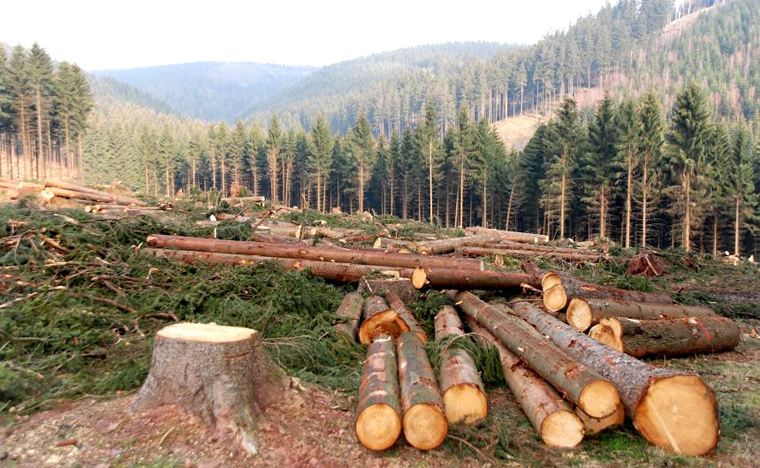
PARIS, Feb 15, 2023 (BSS/AFP) - Many major global firms and financial
institutions that directly or indirectly contribute to deforestation do not
have any policies in place to protect forests, increasing the risk for
catastrophic nature loss, a report said Wednesday.
The report comes just months after countries reached a historic agreement to
protect 30 percent of the world's land and seas by 2030 at UN biodiversity
talks late last year.
At the same time, incoming legislation for the European Union and the United
Kingdom will tighten rules around trading commodities associated with
deforestation.
But new analysis Wednesday showed that hundreds of firms still have not set a
single policy on deforestation despite these high-level commitments.
These companies are at risk -- financially, reputationally, operationally --
if they do not take steps to reduce their role in deforestation, the Forest
500 analysis by non-profit research group Global Canopy said.
"While there have been pockets of progress, the majority of companies and
financial institutions are living on borrowed time, putting climate and
nature goals at risk," Global Canopy director Niki Mardas said.
The report found that 201 of the 500 companies and financial institutions
with the most influence on tropical deforestation -- 40 percent of all firms
assessed -- failed to set any deforestation policies, barely unchanged from a
year ago.
They included VW Group and Deichmann Group, Europe's largest footwear
retailer. Neither replied to AFP's request for comment.
The report assessed 350 companies with the greatest stake in forest-risk
commodities: palm oil, soy, beef, leather, timber and pulp and paper. It also
looked at the 150 financial institutions providing the most finance to these
companies.
It found that 100 companies have deforestation commitments in place for all
of the commodities to which they are exposed, including Britain's consumer
goods firm Unilever and Sainsbury's supermarket.
But is said only half of these are actively monitoring their suppliers or
sourcing regions in line with their own policies.
"More companies have commitments, but few are taking sufficient action to
deliver on them," Global Canopy said.
- Rights abuses -
Deforestation -- driven by commodity crops such as palm oil and soy, cattle
pasture and timber exploitation -- threatens climate, communities and the
diversity of life on Earth.
Experts say containing deforestation is key to reaching climate goals.
Last year, some 330 firms wrote an open letter to world leaders appealing for
rules and regulations to force them to reveal their impact on nature.
New laws in the EU and UK should help to propel that effort, but Global
Canopy said companies need to do better -- and can with more data tools and
guidance available than ever before.
"Really, 2023 is the best year there has ever been to act on deforestation,"
Emma Thomson, Forest 500 lead, told AFP.
"If companies and financial institutions act on deforestation, it is a really
concentrated way to have a huge impact on both the climate crisis and the
nature crisis," she added.
The analysis also revealed that just a fraction of financial institutions
"most exposed to deforestation are addressing deforestation as a systemic
risk".
Of the 150 financial institutions assessed, 92 do not have a deforestation
policy covering their lending and investments.
The financial institutions, which included major asset managers BlackRock,
Vanguard and State Street, provide $6.1 trillion in finance to companies in
forest-risk supply chains, it said.
The report also found that the average company's score for respecting human
rights linked to deforestation fell by seven percentage points with the
addition of new indicators.
Thomson said deforestation is linked to a host of abuses, from violating land
rights and consent, to violence and threats against human rights defenders.
"Deforestation cannot effectively be eliminated without addressing those
human rights abuses," she said.